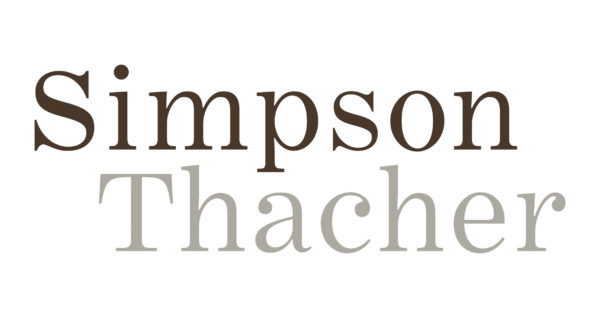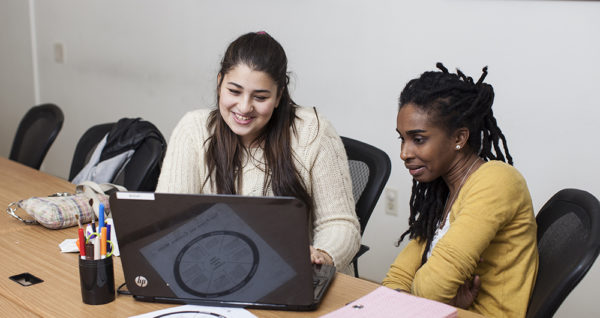At this year’s Above & Beyond Awards, we’re honoring a team of attorneys from Latham & Watkins who have tirelessly advocated for victims of domestic violence and have encouraged others at their firm to do the same. Read to learn more.
Colleen O’Brien is an attorney and a member of Sanctuary’s Pro Bono Council.
—
At this year’s Above & Beyond Awards, we’re honoring a team of attorneys from Latham & Watkins who have tirelessly advocated for victims of domestic violence and have encouraged and inspired other Latham & Watkins attorneys to take on hundreds of pro bono immigration cases.
Taking the Lead
Jessica Rostoker, Irina Sivachenko, and Amanda Parisi, litigation associates in Latham & Watkin’s New York office, have been the backbone of Latham’s robust pro bono immigration practice, and in particular its Violence Against Women Act (“VAWA”) pro bono program.
With their support, last year Latham attorneys contributed the highest number of pro bono hours of any law firm that partners with Sanctuary for Families. Besides taking on dozens of their own direct representation cases, Jessica, Irina, and Amanda have placed over 100 Sanctuary cases with other Latham attorneys and have worked to ensure that the Latham pro bono attorneys taking those cases are well-trained and have the resources and supervision they need to best assist survivors of gender-based violence seek immigration relief. As Laura Atkinson-Hope, the Managing Attorney for Global Pro Bono at Latham attested,
“[Latham] couldn’t consistently take on so many cases without their incredible leadership.”
Pro Bono Work is Personal
For Irina, working on pro bono matters with immigrant women is a meaningful way to pay forward the benefits of her own experience. An immigrant herself, Irina is familiar with what it is like to make the journey to the United States, but she acknowledges the difference for those who arrive in the U.S. to attend college, like she did, and those who are fleeing persecution or violence in their home country.
Similarly, Irina has noted that as a Latham associate, she benefits from the firm’s focus on providing professional development and support for women, and she finds it rewarding to find ways to help other women who otherwise don’t have that support in their lives.
Jessica, who has studied human development as an undergraduate, finds that working with victims of domestic violence allows her to combine her legal training with her academic background and desire to connect with her clients on a human level.
As all three women noted, survivors of domestic violence, especially those in the throes of an abusive relationship, often feel isolated and may not have many people in their lives who they can talk to about what they’re experiencing. Over time, these clients have come to view their pro bono lawyers as confidantes and trusted allies who are there not only to help them fight their legal battles but also to listen to them and support them as they work to reach the next stage in their lives.
Amanda has experienced first-hand the importance of the work Sanctuary for Families and pro bono lawyers are doing. Several of Sanctuary’s clients are often in volatile situations, and seeking legal relief can truly be a matter of life and death. Advocating for those clients, and providing them with comfort when they need it most, is what makes the work most meaningful for Amanda.
Changing Lives
Last year, a significant number of Latham & Watkins attorneys worked on VAWA cases with guidance and support from Jessica, Irina, and Amanda. The three women accept cases from Sanctuary for Families and either take them on personally or find other attorneys to staff the cases, and then provide them with training materials, sample documents, and substantive guidance along the way.
According to Deborah Lee, a Senior Staff Attorney with Sanctuary for Families’ Immigration Intervention Project, Jessica, Irina, and Amanda have never said “no” when she has asked them to take on a new case, and she often calls them to help with the cases that have the most complex legal challenges or involve highly sensitive situations.
When asked how her pro bono immigration work has affected her overall professional development, Irina noted how empowering it is for young lawyers to have the chance to work directly with clients and manage their cases.
“We live in one of the most diverse cities in the world, but we still live in our own bubbles…this pro bono work makes me a better attorney and a better person.”
But as meaningful as Jessica, Irina, and Amanda have found the work to be, for their clients, it is life changing. Clients frequently comment to the Latham team, and to Deborah, how grateful they are for the help they’ve received from their pro bono counsel. They feel respected and valued and know that they are just as important to Latham’s lawyers as their paying clients. And nothing can compare to clients’ reactions when, months or years later, they receive permanent residency. The joy and relief they experience is incomparable and never fails to move their dedicated legal teams.
—
Join us at our Above & Beyond celebration on November 13, 2018, at the RUMI Event Space, 229 W 28th St, New York, New York as we honor this Latham & Watkins team’s outstanding pro bono work. You can buy tickets here.
If you can’t join us, but would like to support Sanctuary for Family’s work, please consider making an Above & Beyond donation here.


